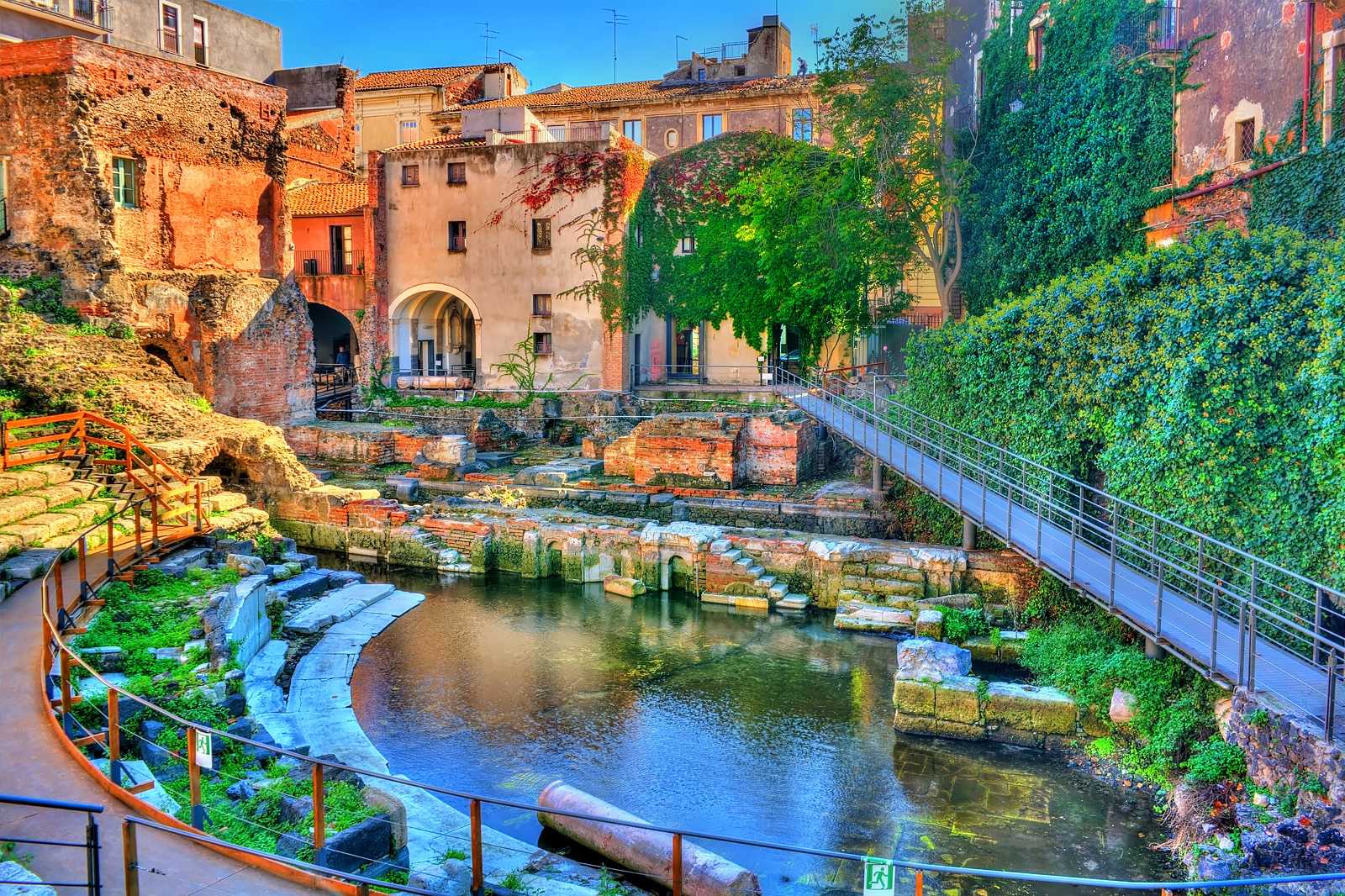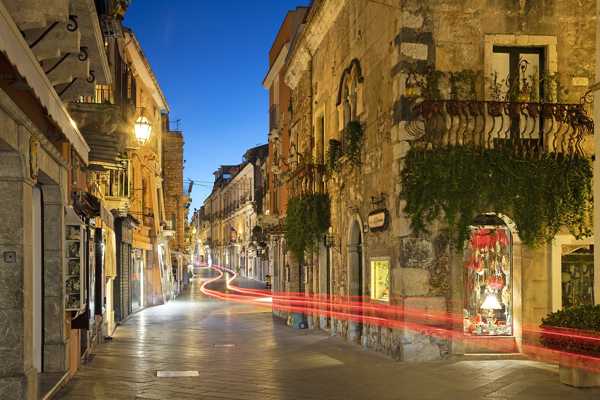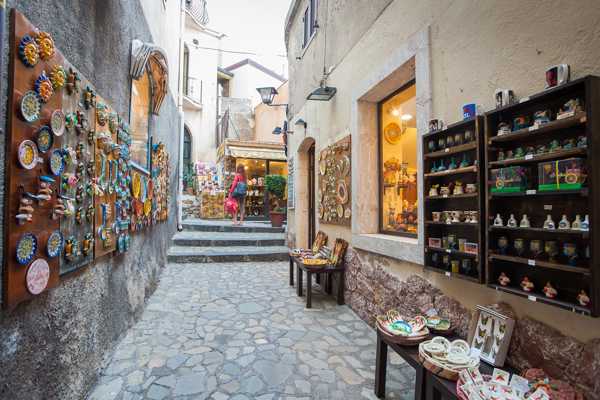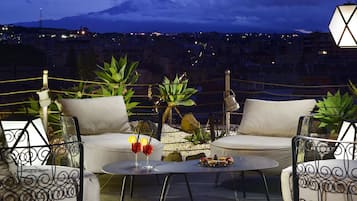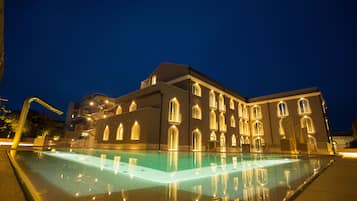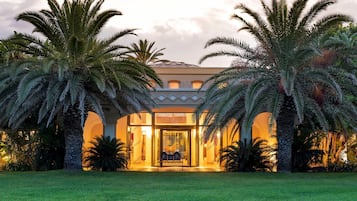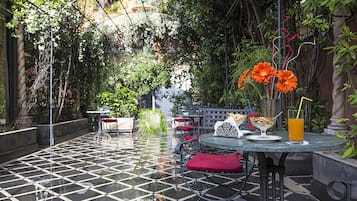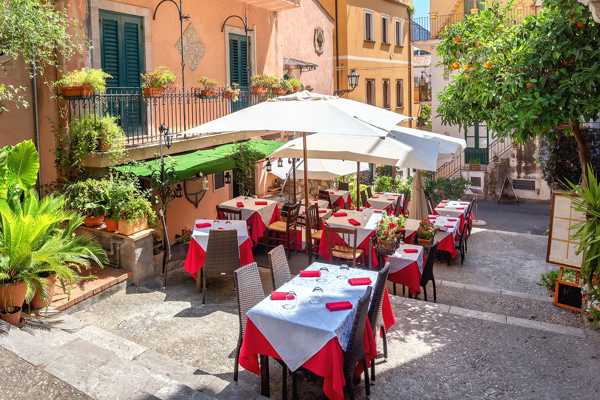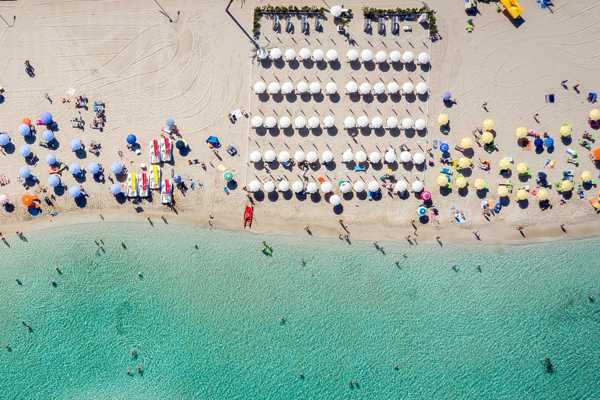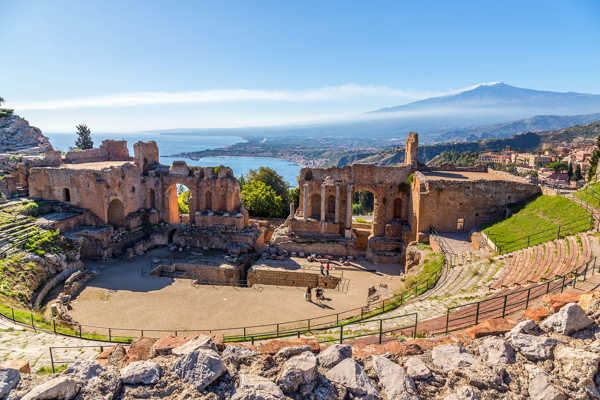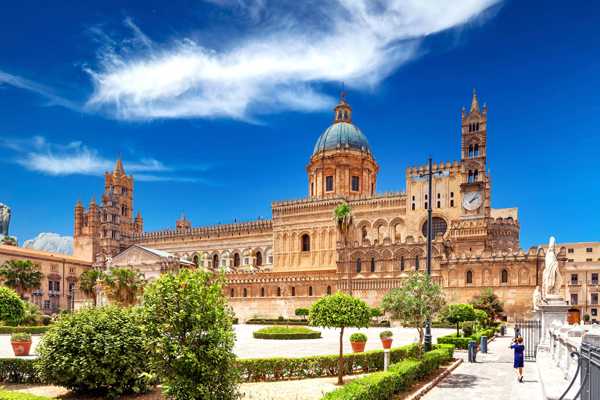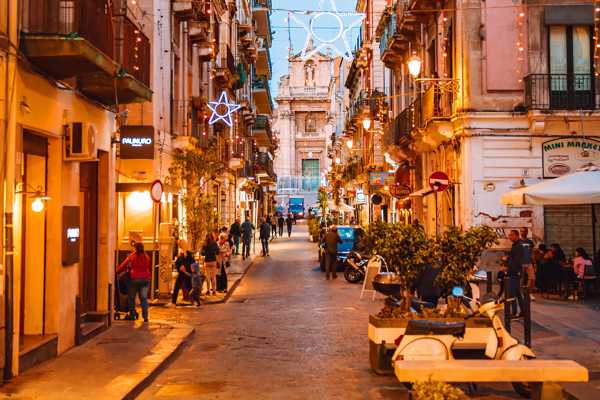The best things to do in Catania mainly showcase the city's ancient heritage and natural attractions. Set on the island of Sicily, it attracts nature lovers with its imposing mountains and marine reserves. This coastal area is especially popular in summer, when you get to enjoy idyllic beaches, comfortable weather, and beach resorts with views of the Mediterranean Sea.
If you’re up for an adventure, a hike up to Europe’s highest volcano makes for a thrilling holiday experience. In the vicinity, the towns of Taormina and Aci Castello are teeming with historical structures dating back to medieval times. Read on for our guide on Catania's most famous landmarks.
What are the best things to do in Catania?
- 1
Piazza del Duomo
The lively heart of Catania, now a World Heritage Site
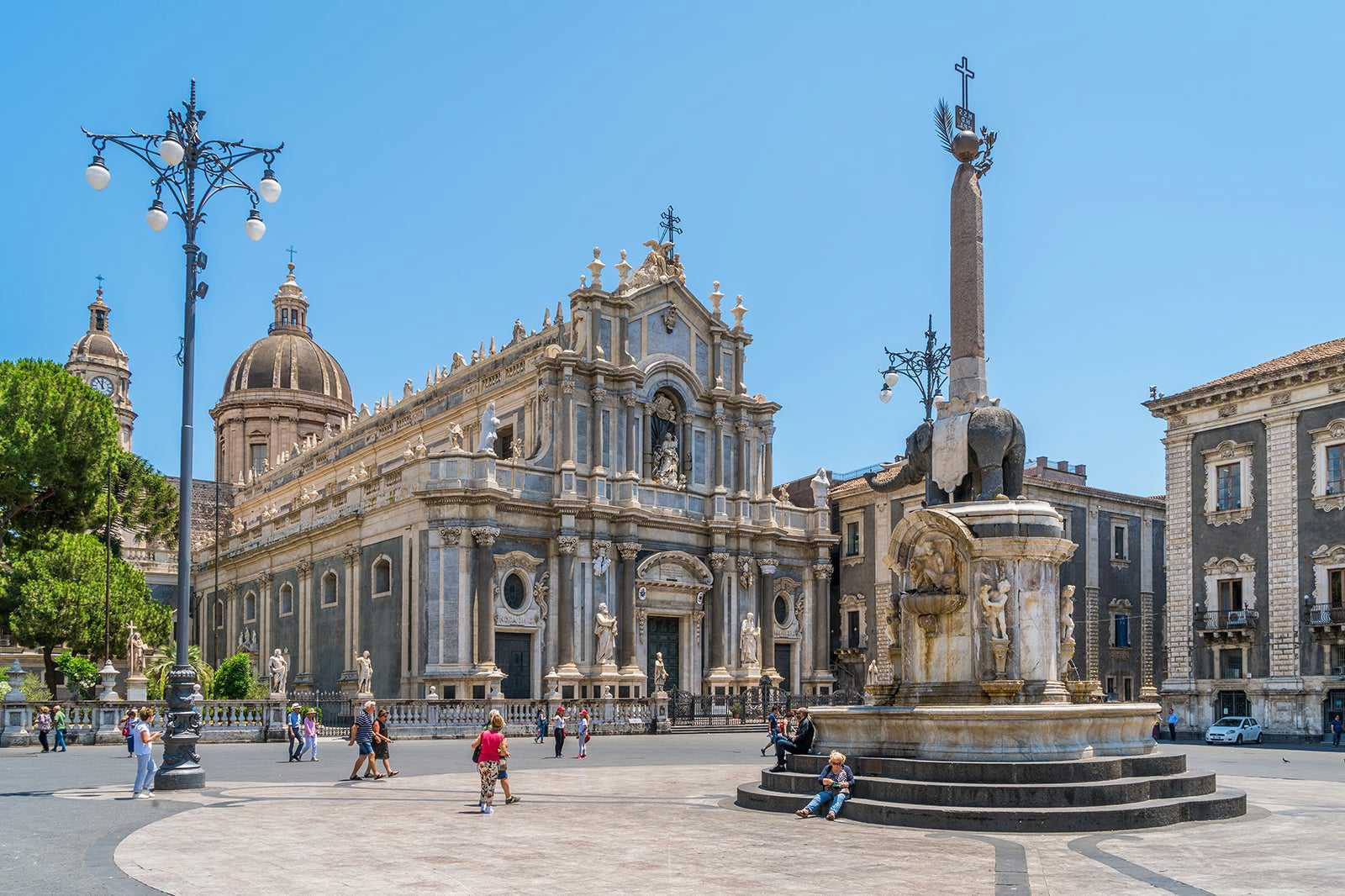
- Économique
- Histoire
- Photographie
Piazza del Duomo is a central square in Catania and home to the magnificent Cattedrale di Sant'Agata. The black lava stone elephant sculpture surmounted by an obelisk in the centre of the piazza, known as l'Elefante, is an iconic symbol of the city.
The piazza is also home to other notable buildings, such as the Palazzo degli Elefanti, the seat of the local government, and the Palazzo Biscari, one of the most beautiful Baroque palaces in Sicily. The square's original buildings were rebuilt after a devastating earthquake in 1693 destroyed almost the entire city of Catania.
Emplacement : Piazza del Duomo, 95100 Catania CT, Italy
Carte - 2
Castello Ursino
An imposing, well-preserved medieval castle
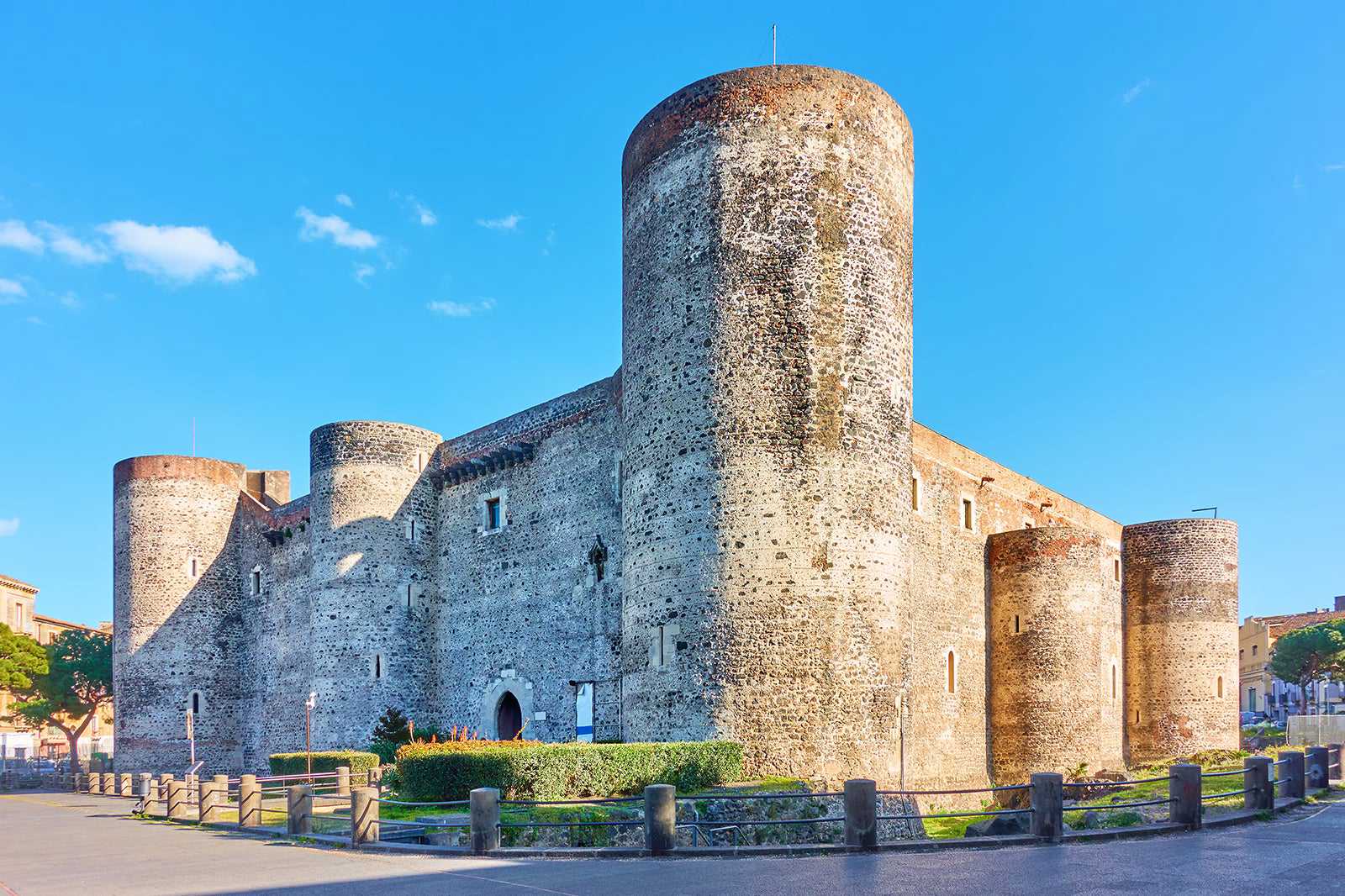
- Histoire
- Photographie
Ursino Castle (Castello Ursino) was first built atop a sea-facing cliff in the 13th century on orders from Frederick II, Holy Roman Emperor. It was initially constructed as a royal castle of the Kingdom of Sicily but later served as a residence for royal families and as a prison. You can still see hundreds of graffiti – names, dates, and various symbols – scrawled on the prison walls.
The castle survived the earthquake of 1693, but the surrounding area was reclaimed by Mt Etna lava, and the building is now landlocked. Today, the castle houses the Museo Civico. The museum displays archaeological artefacts from Roman times and artworks from the 17th, 18th and 19th centuries.
Emplacement : Piazza Federico di Svevia, 95121 Catania CT, Italy
Ouverture : Daily from 10 am to 5.50 pm
Téléphone : +39 09 5345 830
Carte - 3
Cattedrale di Sant'Agata
Visit the ruins of a Greco-Roman bath house below the cathedral
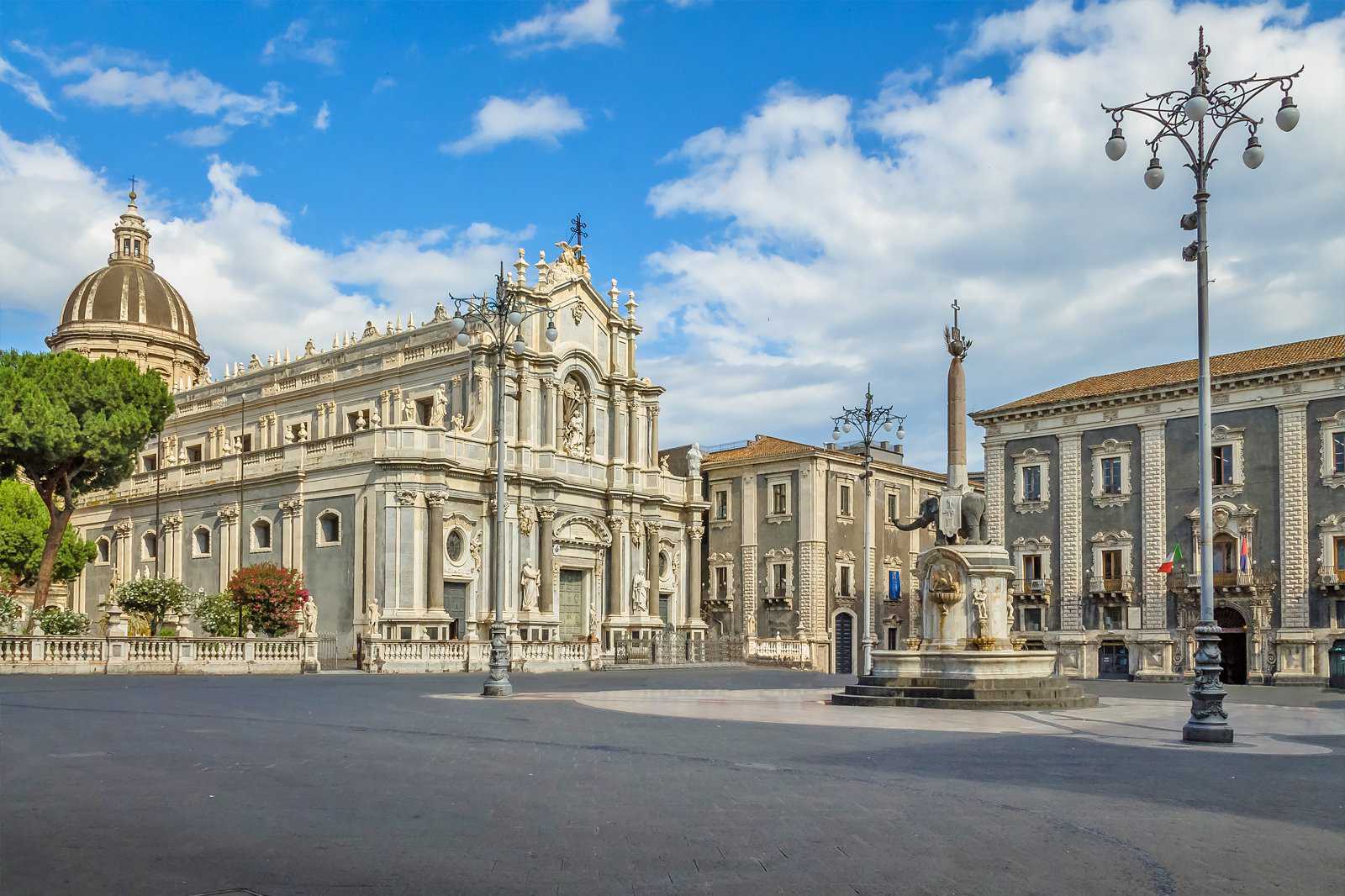
- Économique
- Histoire
Cattedrale di Sant'Agata is a Roman Catholic cathedral dedicated to Saint Agatha, the patron saint of Catania. Located in Piazza Duomo, its tiered Baroque façade features granite Corinthian columns with marble sculptures of Saint Agatha, Saint Euplius, and Saint Birillus, while the entrance door is decorated with over 32 sculpted plaques detailing the life and death of the patron saint. Religious artefacts, altarpieces, and 14th century paintings are displayed at the Museo Diocesano, which connects to the ruins of Greco-Roman baths underneath Cattedrale di Sant'Agata.
Emplacement : Via Vittorio Emanuele II, 163, 95131 Catania, Italy
Ouverture : Monday–Saturday from 7 am to noon and from 4 pm to 7 pm, Sunday from 7.30 am to 12.30 pm and from 4.30 pm to 7 pm
Téléphone : +39 095 320044
Carte - 4
Teatro Romano and Odeon
Climb to the highest peak of Teatro Romano for views of Catania
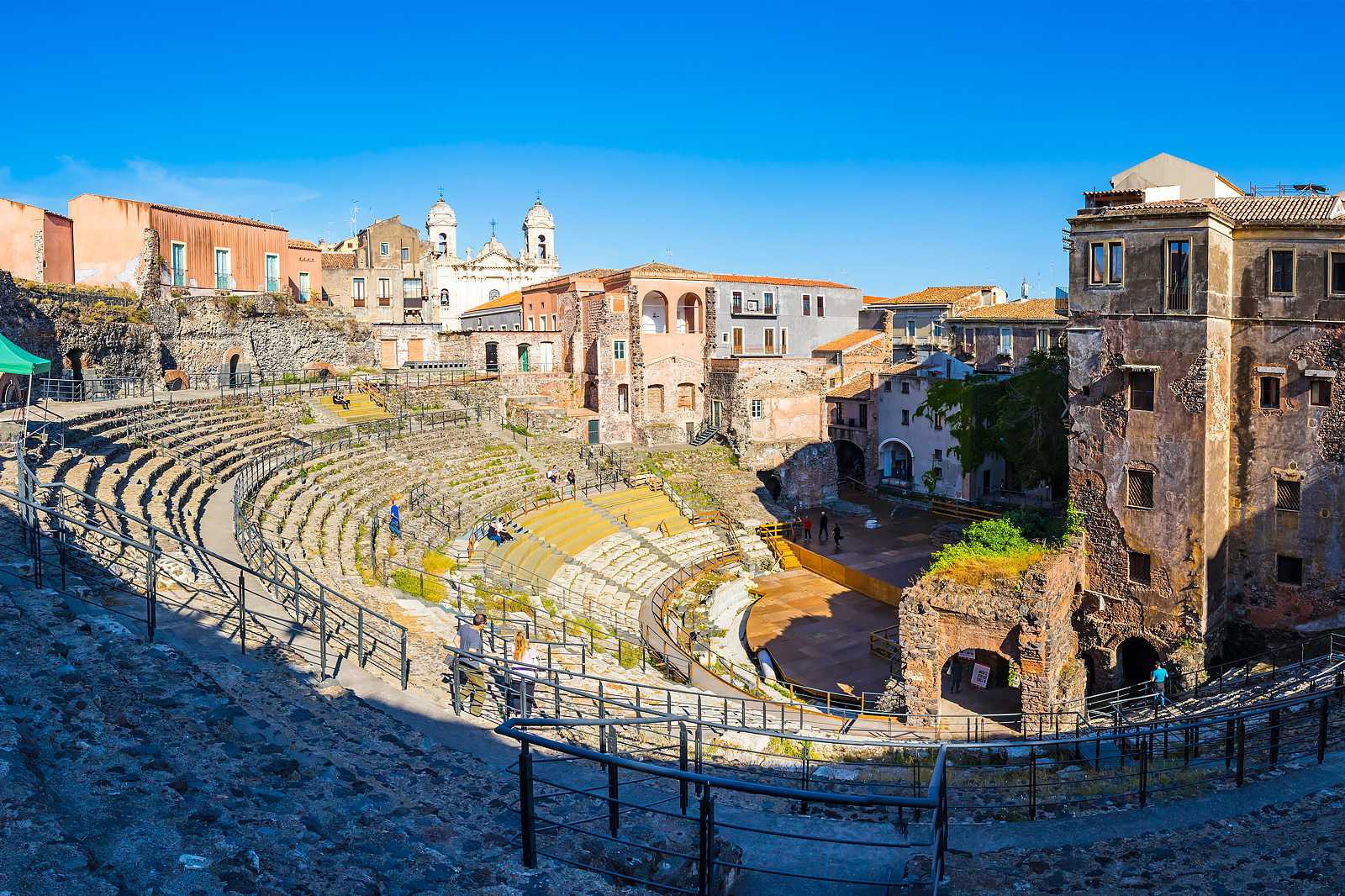
- Économique
- Histoire
Teatro Romano and Odeon, located in Via Vittoria Emanuele, are 2 Roman amphitheatres dating back to the Imperial Age. The larger of the 2, Teatro Romano, spans 102 metres, with an open-air orchestra pit surrounded by curved corridors and a seating area that could accommodate over 7,000 people. Teatro Odeon is about half the size but is still used today for live music and dance performances.
Emplacement : Via Vittorio Emanuele II, 266, 95124 Catania, Italy
Ouverture : Tuesday–Sunday from 9 am to 1.30 pm and from 2.30 pm to 6 pm
Téléphone : +39 039 715 0508
Carte - 5
Via Etnea
Catania's main shopping street
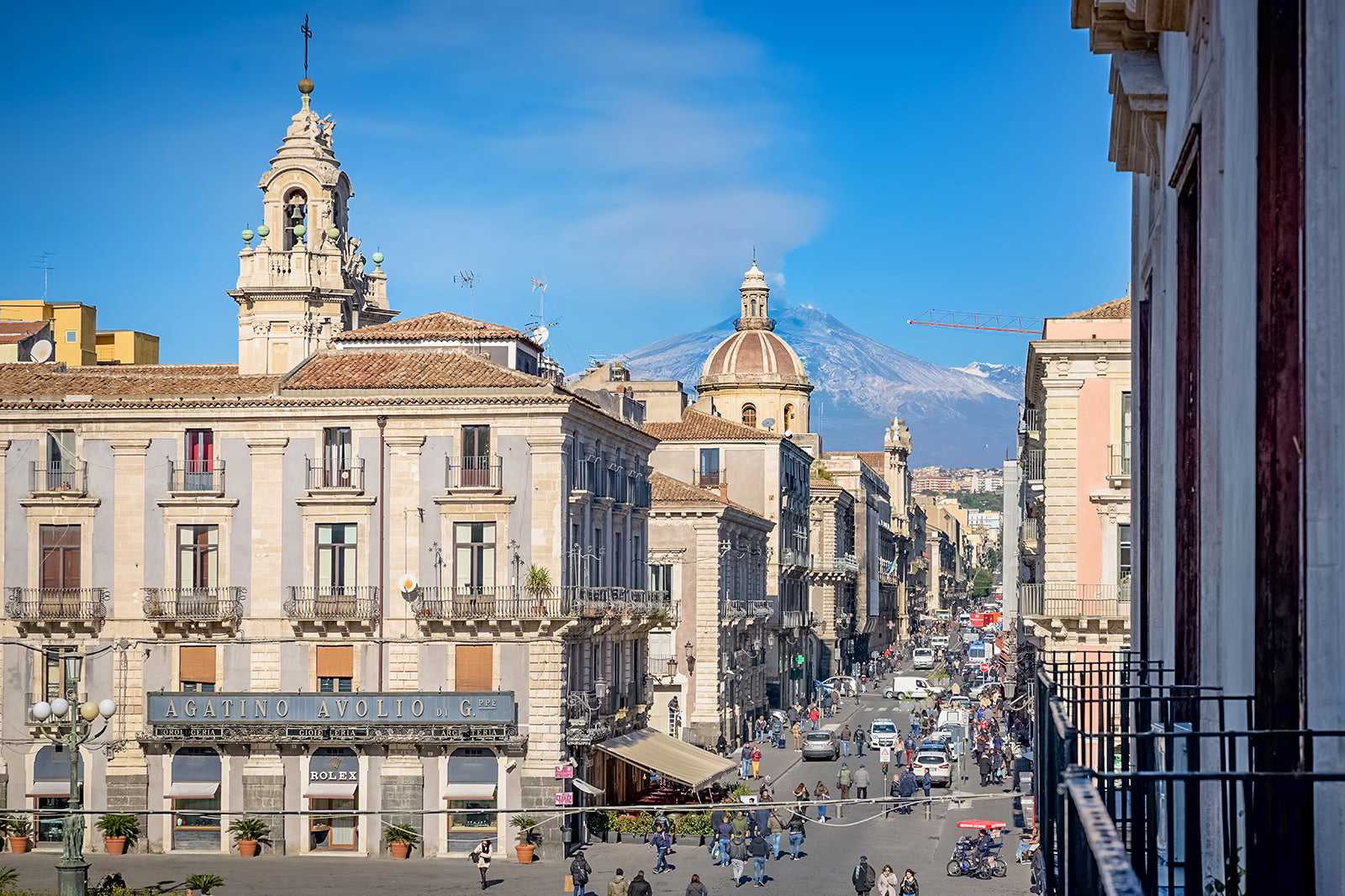
- Économique
- Gastronomie
- Photographie
- Shopping
Via Etnea is Catania's main shopping street and a great place to pick up fashion items and souvenirs such as traditional Sicilian ceramics. In between shopping, you can grab a bite at one of the many eateries and gelaterias. The street starts at Piazza Duomo and runs for about 3 km to Tondo Gioeni square. Opposite the square is the hilltop Gioeni Park where you can soak up views of Mt Etna.
Most buildings along Via Etnea were destroyed in the 1693 earthquake and replaced with grand Baroque-style buildings. These include the Palazzo Gioeni, Palazzo San Demetrio, and Villa Bellini, with its beautifully landscaped gardens.
Emplacement : Catania, Metropolitan city of Catania, Italy
Carte - 6
Monastery of San Nicolò l'Arena
Join a guided tour of this UNESCO-listed monastery
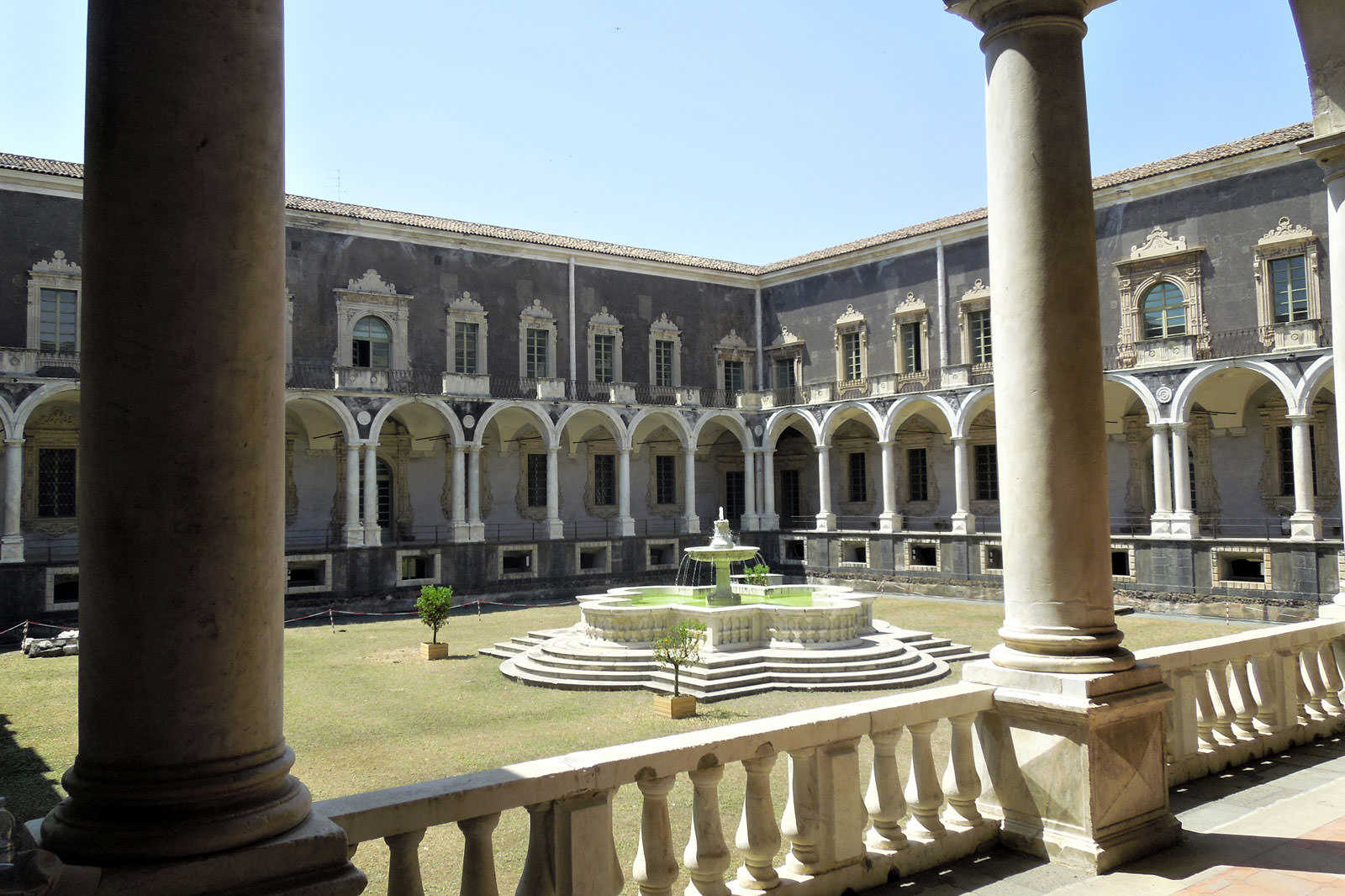
- Histoire
Monastero dei Benedettini di San Nicolò l'Arena is a UNESCO World Heritage Site in Catania’s historical district. One of Europe's largest monasteries, the Baroque building is currently used by Catania University’s Department of Humanities. Hourly guided tours are available for about €7, where you can get to access its 16th-century kitchen and cellars, as well as the balcony of San Nicolò l’Arena Churh’s main altar.
Emplacement : Piazza Dante Alighieri, 32, 95124 Catania, Italy
Ouverture : Daily from 9 am to 5 pm
Téléphone : +39 095 710 2767
Cartephoto de Cosal (CC BY-SA 4.0) modifiée
- 7
Museo Cicico Belliniani
Explore the former home of Sicily’s most famous composer
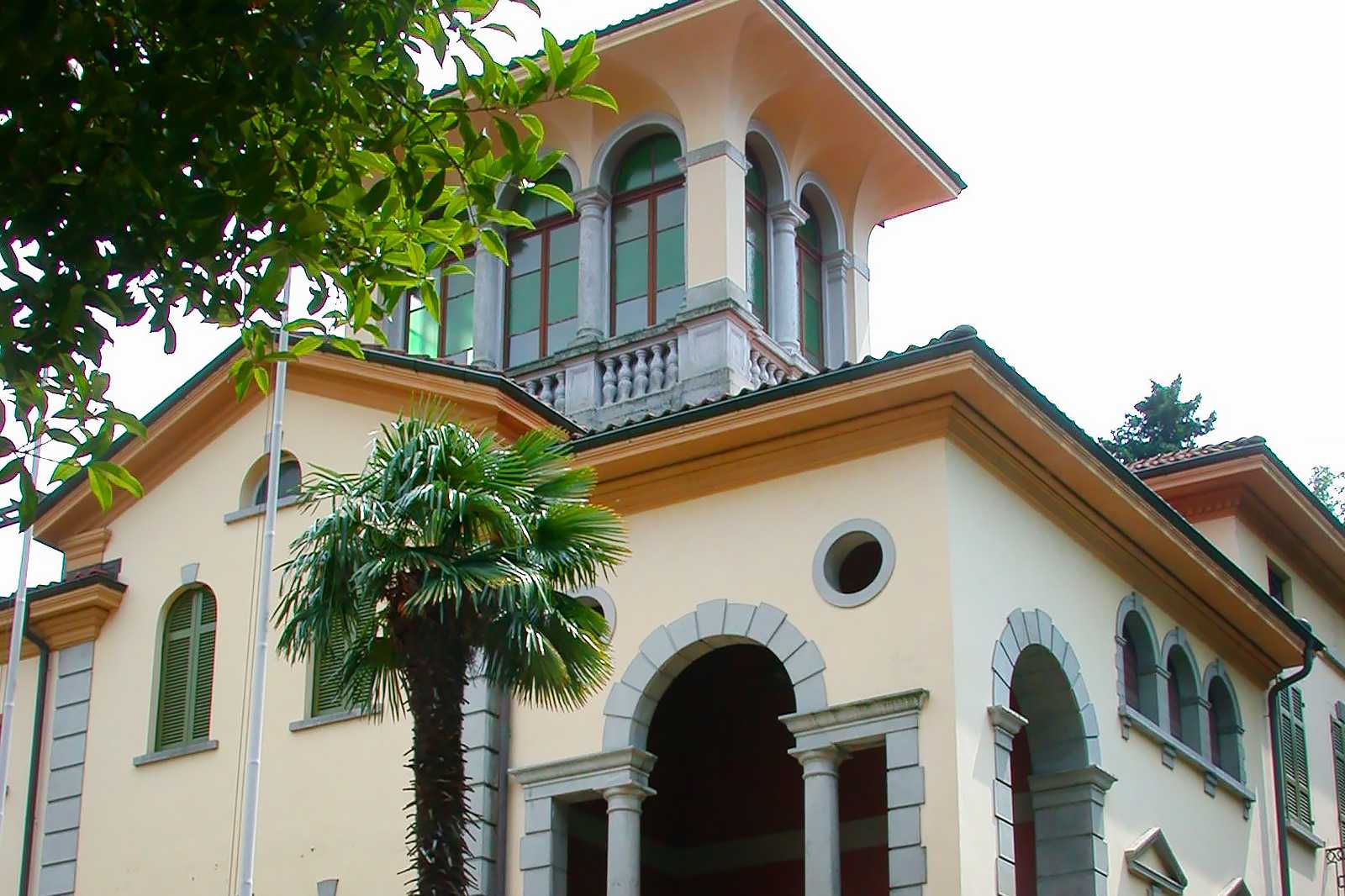
- Économique
- Histoire
Museo Civico Belliniano commemorates one of Sicily’s most iconic composers, Vincenzo Bellini (1801-1835). Founded in 1930, the museum occupies his former home in Piazza San Francesco d'Assisi. You'll find many of his photographs and personal belongings such as his death mask, 2 pianos, autographed manuscripts, spinet, and harpsichord. Entrance to Museo Civico Belliniano is free and guided tours can be arranged for a few euros.
Emplacement : Piazza San Francesco d'Assisi, 3, 95124 Catania, Italy
Ouverture : Monday–Saturday from 9 am to 1 pm, Sunday from 8.30 am to 1.30 pm
Téléphone : +39 095 715 0535
Cartephoto de Riccardo Speziari (CC BY-SA 3.0) modifiée
- 8
Aci Castello
Visit the 11th-century Norman Castle
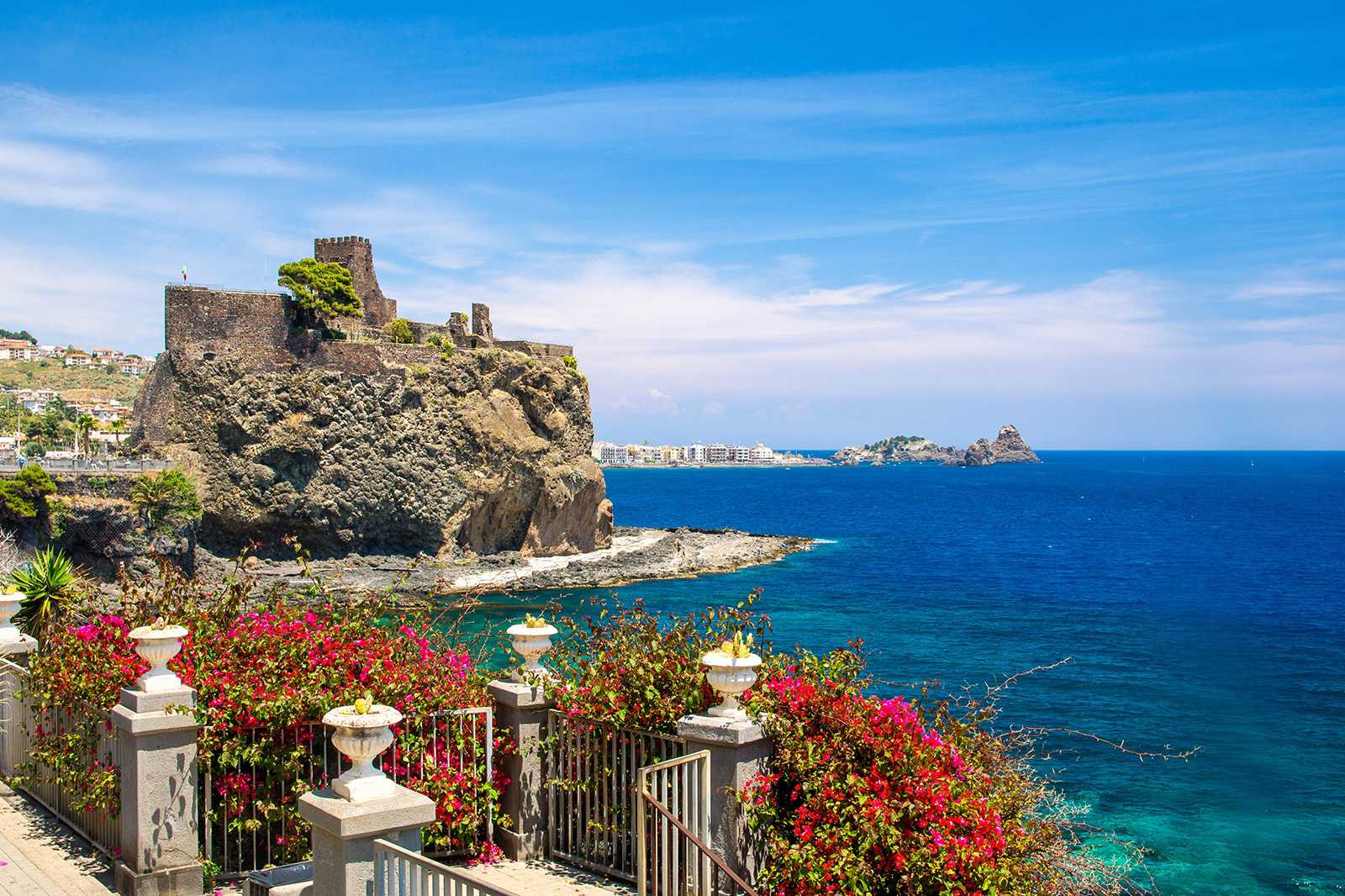
- Histoire
Aci Castello is a coastal town located 9 km north of Catania. Its most famous landmark is the Norman Castle, which was built in 1076. Inside is a Civic Museum displaying archaeological remains dating back from prehistoric to medieval times. Climb to the top of the castle for panoramic views of the Mediterranean Sea. Another must-visit in Aci Castello is the Church of St. Joseph, which features beautiful frescoes by Pietro Paolo Vasta.
Emplacement : Aci Castello, 95021 Province of Catania, Italy
Carte - 9
Mount Etna
Join a hiking trip to the top of Europe’s highest active volcano
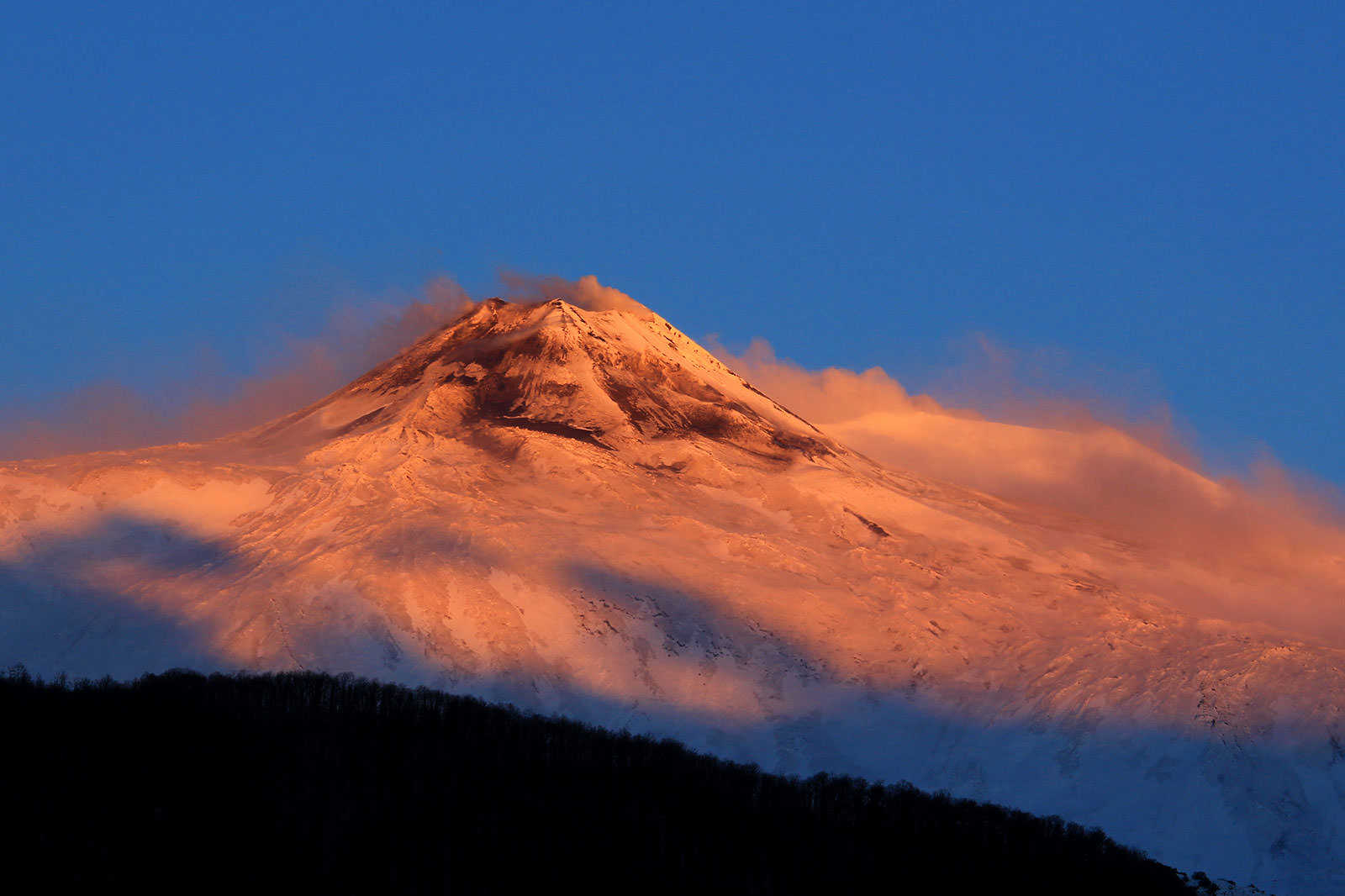
- Insolite
Mount Etna is an imposing peak and active volcano between the towns of Catania and Taormina. Measuring 3,300 metres in height, it attracts hiking enthusiasts looking to test their endurance during their visit to Catania. Buses to the base of the mountain depart every day at 8.15am from Catania Railway Station, with return fares priced at around €7 per person. After an hour-long ride, you arrive at the mountain’s southern entrance called Rifugio Sapienza. From there, you can then hike up 1,000 metres or pay €30 for a cable car ride to the crater zone.
Emplacement : Etna, 95031 Adrano, Province of Catania, Italy
Carte - 10
Taormina
Relax on Isola Bella Island
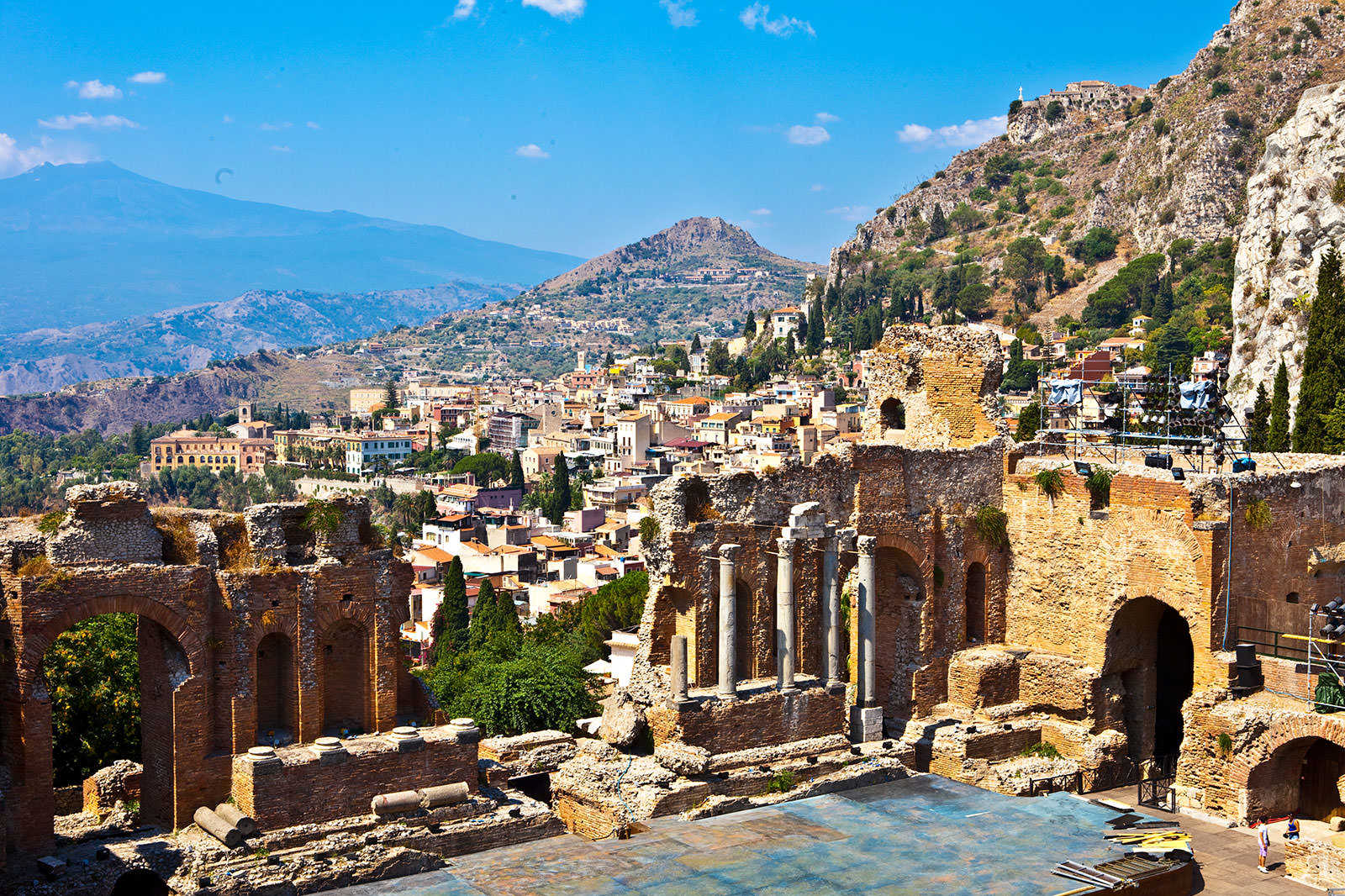
- Couples
The hilltop town of Taormina is where you can explore ancient Greek structures with views of Mount Etna and the Mediterranean Sea. Buses depart from the Terminal Interbus - Etna Trasporti in central Catania, with tickets priced at around €8.50 for a return trip. Taormina is usually packed with beachgoers looking to enjoy the summer at Isola Bella, a UNESCO-protected island that’s connected to the mainland via a beach strip.
Emplacement : Taormina, 98039 Province of Messina, Italy
Carte - 11
Teatro Massimo Bellini
Catania's grand opera house
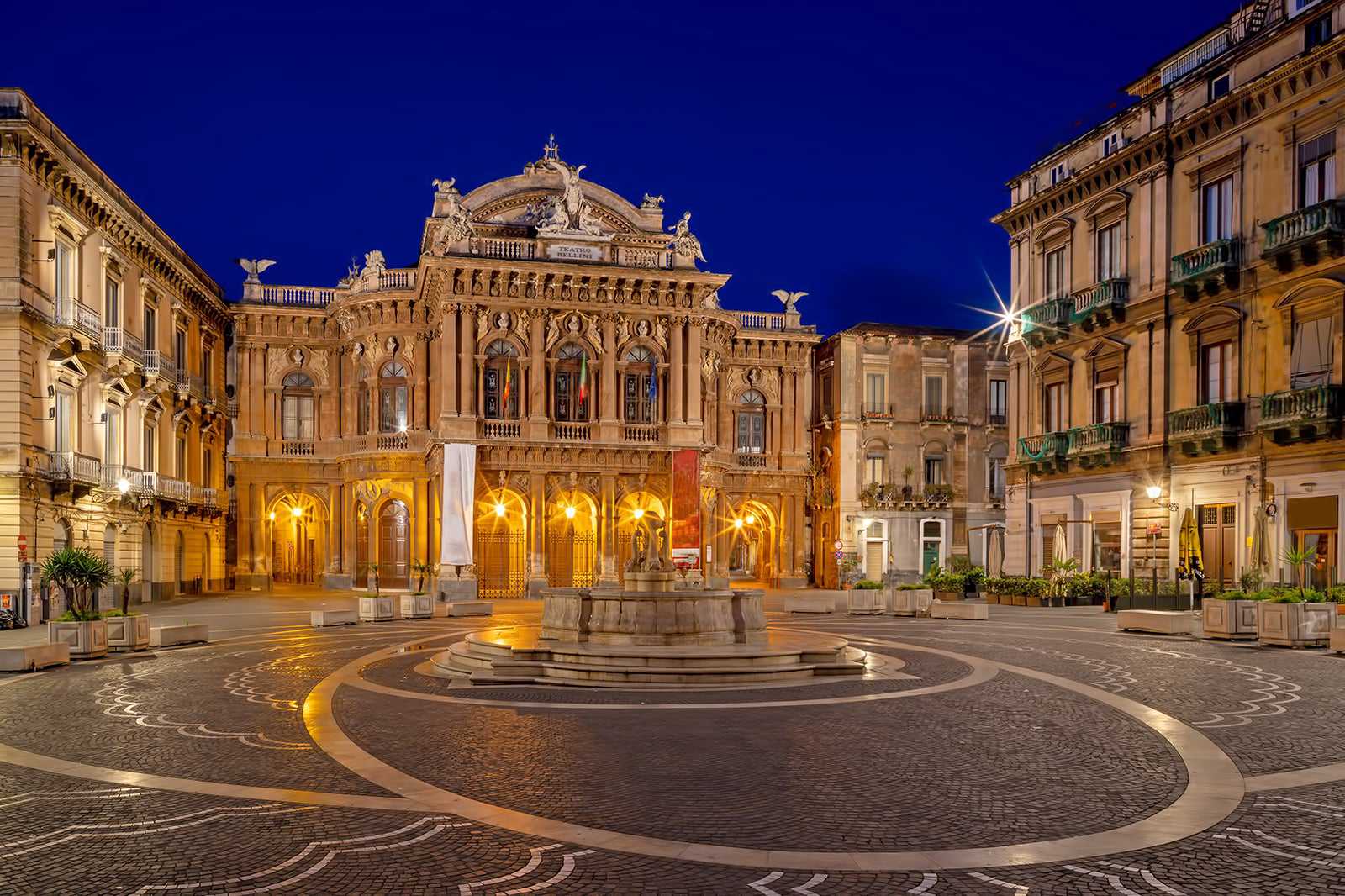
- Couples
- Groupe
- Histoire
- Vie nocturne
- Photographie
Massimo Bellini Theater (Teatro Massimo Bellini) is a beautiful opera house and theatre located in the historic centre of Catania. It was built in 1890 and named after the local composer Vincenzo Bellini, born in Catania in 1801. If you cannot catch a performance, take a guided tour of the theatre. The tour covers the magnificent auditorium with its red and gold decor, marble statues, and frescoes.
You’ll also get to see the ornate marble foyer and 19th-century boxes. Guided tours in English and Italian are available from Tuesday to Saturday at 9 am, 10 am, 11 am and midday.
Emplacement : Via Giuseppe Perrotta, 12, 95131 Catania CT, Italy
Téléphone : +39 09 5730 6111
Carte
